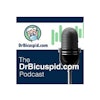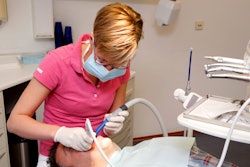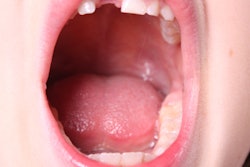
How good are you at telling if a patient has dental anxiety? Maybe not as good as you think, as a new study found that dental practitioners rated poorly in their ability to determine a patient's dental anxiety.
Researchers wanted to find out if dental practitioners were able to accurately assess patients' anxiety. The study included 104 practitioners -- dentists, hygienists, and assistants -- from 24 public dental clinics in Sweden, and the investigators found that practitioners generally rated a patient's dental anxiety lower than the patient, they reported in the European Journal of Oral Sciences (July 18, 2019).
Dental anxiety is a challenge faced by dental practitioners everywhere. Up to 75% of U.S. dentists have reported that this is a significant barrier that prevents patients from receiving adequate care, the study authors noted.
To evaluate practitioners' ability to rate dental anxiety, the researchers asked 1,128 adult patients to rate their dental anxiety at their regular dental examination. Patients used the Modified Dental Anxiety Scale and a visual analog scale. After the examination, the practitioners were asked to rate the patient's anxiety on a visual analog scale.
The researchers found only a moderate correlation between the clinicians' and patients' ratings of dental anxiety. For patients considered highly anxious, they found no correlation between the scores done by the practitioners and the patients.
However, a practitioner's ability to rate dental anxiety was better when the clinician was older and the patient was older, the study authors noted.
They noted several possible limitations in the study:
- Both the scales used may be susceptible to random errors.
- No private practice practitioners were included in the study.
The authors concluded that dental practices should consider using a patient dental anxiety visual analog scale for screening dental anxiety.
"When a high level of dental anxiety is observed, we recommend using a more advanced questionnaire, initiating a dialogue with the patients about their fear, and investigating the need for evidence‐based psychological treatments," wrote the authors, led by Markus Höglund, a graduate student in the department of dental medicine at the Karolinska Institute in Huddinge, Sweden.



















